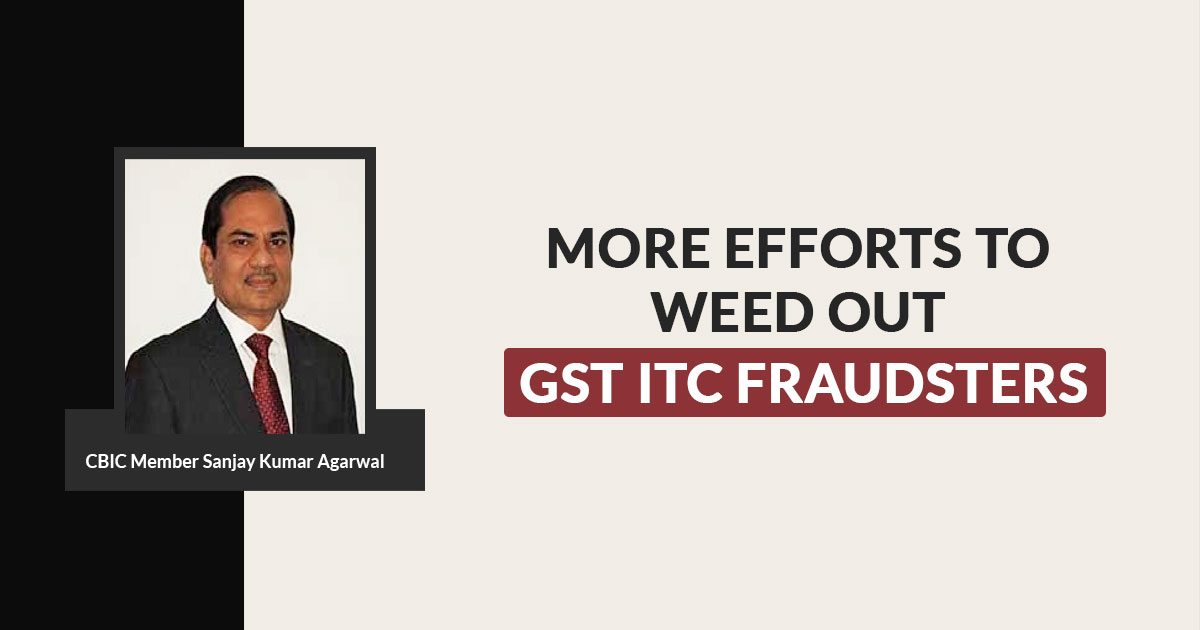
On Wednesday, Sanjay Kumar Agarwal, a member of the CBIC, stated that additional efforts are required to get a solution for fake GST input tax credit (ITC) generators from the system in order to stop tax evasion and boost GST collection. He said that the government has taken a number of measures to deal with the problem of fraudulent ITC claims and has already started a special, two-month-long campaign to detect malpractices and identify fraudulent Goods and Services Tax (GST) registrations.
At a PHDCCI event, Agarwal stated that if seeding bogus ITC is made impossible or extremely difficult, the issue will be resolved in its tracks. The most recent validations have been introduced to help with this. To remove fake ITC generators from the system, more work needs to be done.
He continued by saying that 1.39 crore taxpayers have registered for GST, up from 64 lacks under the previous excise and service tax regime. Numerous suspicious individuals have accessed the GST system in order to submit ITC claims based on false invoices. He continued by saying that the challenge facing tax administration is how to get rid of them and restore the system’s purity.
On July 1, 2017, the Goods and Services Tax (GST) came into existence, incorporating more than a dozen indirect taxes imposed by the central government and states. From Rs. 54,000 crore in the fiscal year 2021–2022 to Rs. 1 lakh crore in the fiscal year 2022–2023, GST avoidance has increased.
The overall number of cases of evasion is also increasing, with 14,000 cases being detected in 2022–2023 compared to 12,574 cases in 2021–2022 and 12,596 cases in 2020–2021. The GST Policy Wing wrote to the Principal Chief Commissioners of Central Tax earlier this month to draw attention to the fact that fake or invalid registrations are being used to issue invoices without any underlying supply of goods or services in order to fraudulently transfer input tax credits to unscrupulous recipients.
Central and State tax officers are completing the necessary verification and taking additional corrective action to remove these false billers from the GST eco-system during the “Special All-India Drive” from May 16 to July 15 to detect suspicious or fake GSTINs. The GST network will detect fake GSTINs for state and central tax authorities and exchange the relevant information, jurisdiction-wise, with the relevant state or central tax administration to launch verification drives and take subsequent appropriate moves.









